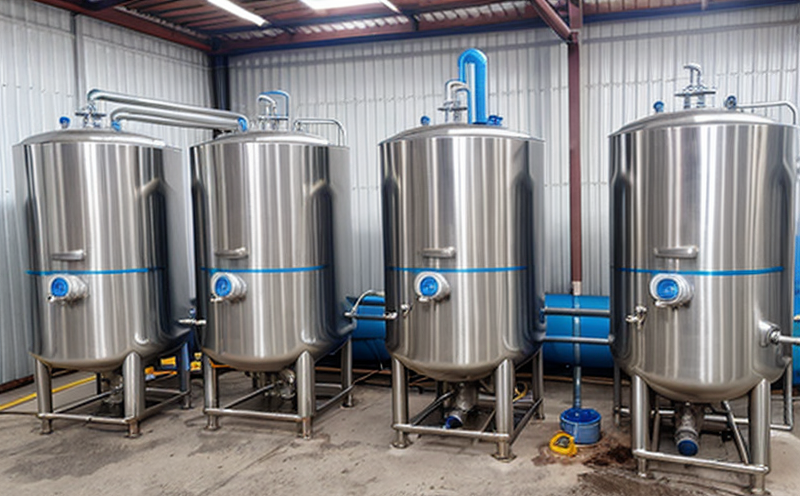APHA 2320B Alkalinity Test in Cooling Water
The APHA 2320B method for alkalinity testing is a fundamental analytical procedure widely used by quality managers, compliance officers, R&D engineers, and procurement professionals to ensure the optimal operation of cooling water systems. This test measures the total alkalinity present in the water, which is crucial for maintaining the pH balance and preventing corrosion within these systems.
Alkalinity plays a critical role in controlling the pH level of cooling water. Excessive or insufficient alkalinity can lead to operational inefficiencies, increased chemical usage, and potential equipment damage. By accurately measuring alkalinity using the APHA 2320B method, operators can fine-tune their treatment strategies to optimize performance.
The procedure involves titrating a known volume of water with a standardized acid solution until the endpoint is reached. The amount of acid required to reach this point directly correlates to the total alkalinity present in the sample. This measurement helps identify any pH issues and ensures that the cooling water system remains within safe operational parameters.
Quality managers rely on accurate alkalinity testing to monitor the effectiveness of their treatment programs, ensuring compliance with industry standards such as ISO 9001:2015 for quality management systems. Compliance officers can use these results to ensure that they meet regulatory requirements set forth by agencies like the U.S. Environmental Protection Agency (EPA).
R&D engineers benefit from this test in developing new cooling water treatment solutions, while procurement teams can leverage it to select vendors who provide high-quality chemicals and equipment for maintaining optimal alkalinity levels.
Industry Applications
- Monitoring the effectiveness of chemical treatments in reducing corrosion risks.
- Detecting changes in water quality due to external factors such as rainwater intrusion or seasonal variations.
- Ensuring compliance with local and international standards for water treatment processes.
- Optimizing the pH levels of cooling towers to extend equipment lifespan and reduce operational costs.
The APHA 2320B test is particularly important in facilities such as power plants, refineries, and manufacturing plants where large volumes of water are used for cooling purposes. By accurately measuring alkalinity, these organizations can prevent costly downtime due to equipment failures and improve overall operational efficiency.
Eurolab Advantages
- State-of-the-art laboratories equipped with advanced analytical instrumentation for precise measurements.
- Dedicated team of experts with extensive experience in water and wastewater testing.
- Comprehensive quality assurance protocols to ensure accurate and reliable results.
- Fast turnaround times without compromising on accuracy, allowing for timely decision-making.
EuroLab stands out as a premier choice for APHA 2320B alkalinity testing in cooling water. Our laboratories are equipped with the latest analytical instruments and software, ensuring that our results are both precise and reproducible. Our team of experienced analysts provides detailed reports that not only meet but exceed industry standards. With EuroLab, you can trust that your cooling water systems will be tested accurately, efficiently, and consistently.
Why Choose This Test
- The APHA 2320B test is internationally recognized for its reliability and accuracy in measuring alkalinity.
- This method allows for real-time monitoring of water quality, facilitating immediate corrective actions when necessary.
- It helps prevent operational disruptions by identifying potential pH imbalances early on.
- The results provide valuable insights into the effectiveness of corrosion control measures and other treatment processes.
Selecting this test ensures that your cooling water systems remain in optimal condition, reducing maintenance costs and extending equipment lifespan. It also contributes to environmental sustainability by minimizing chemical usage and waste generation.





